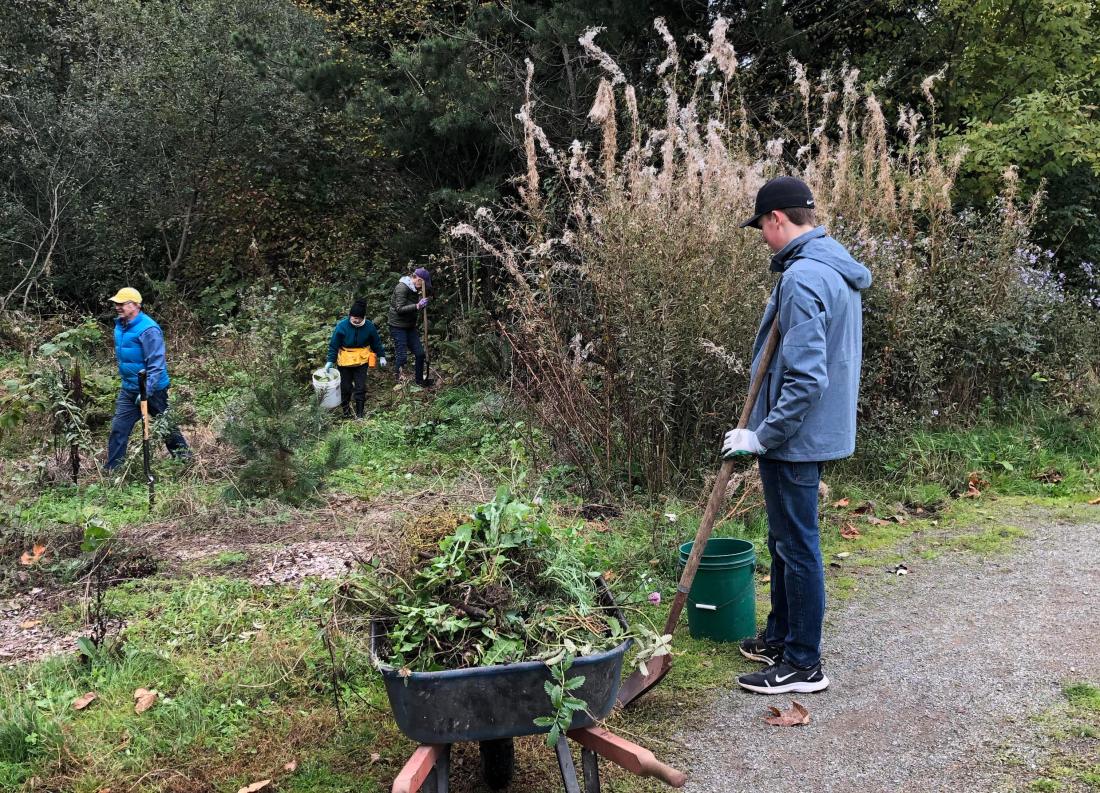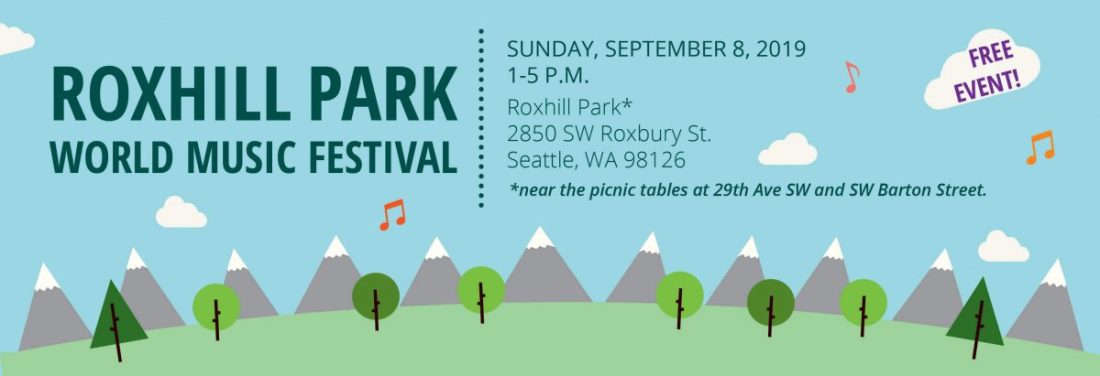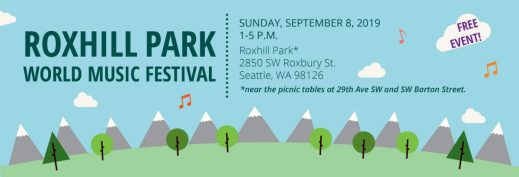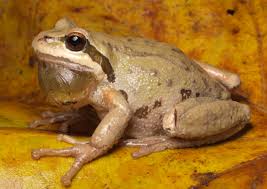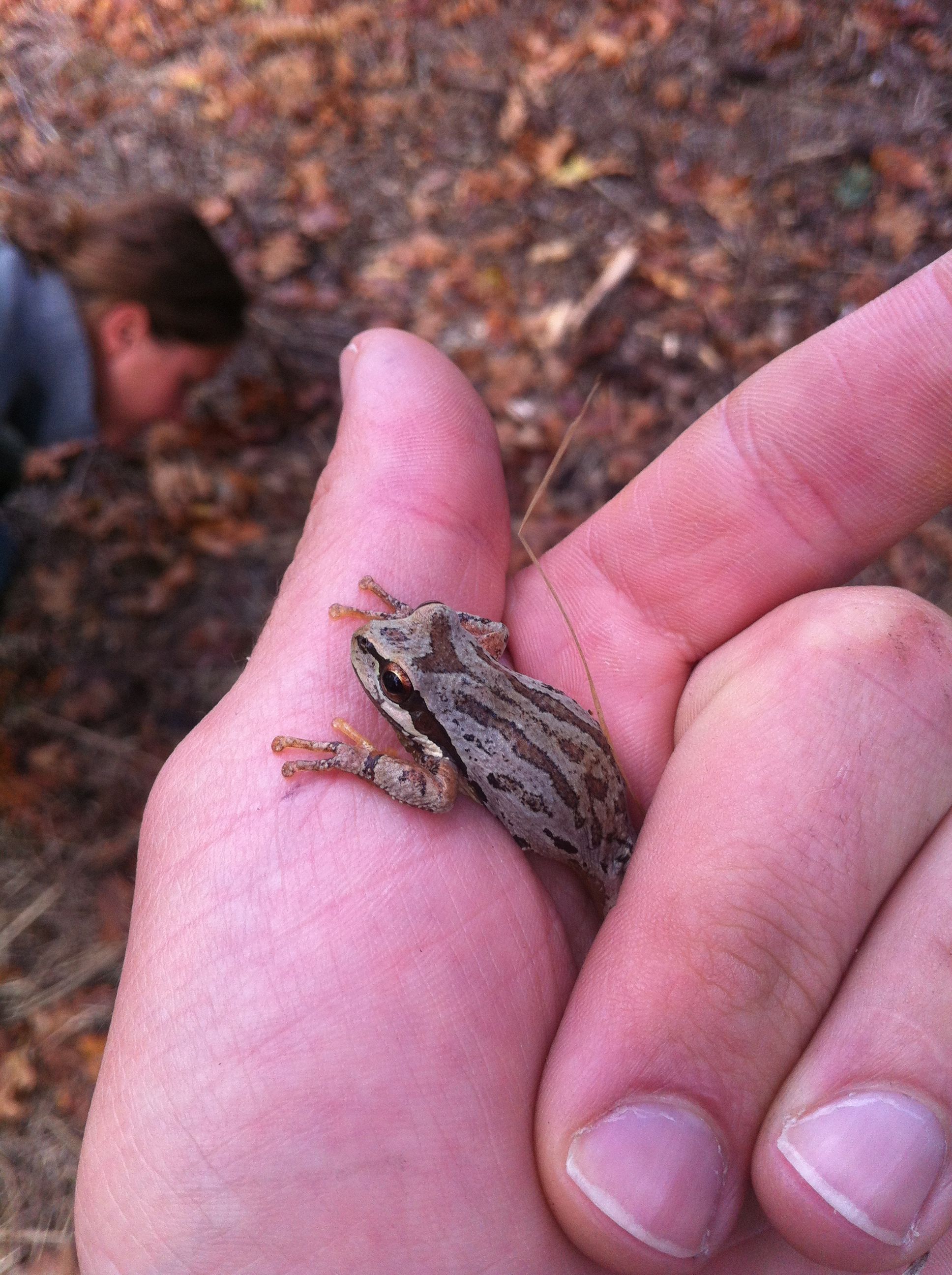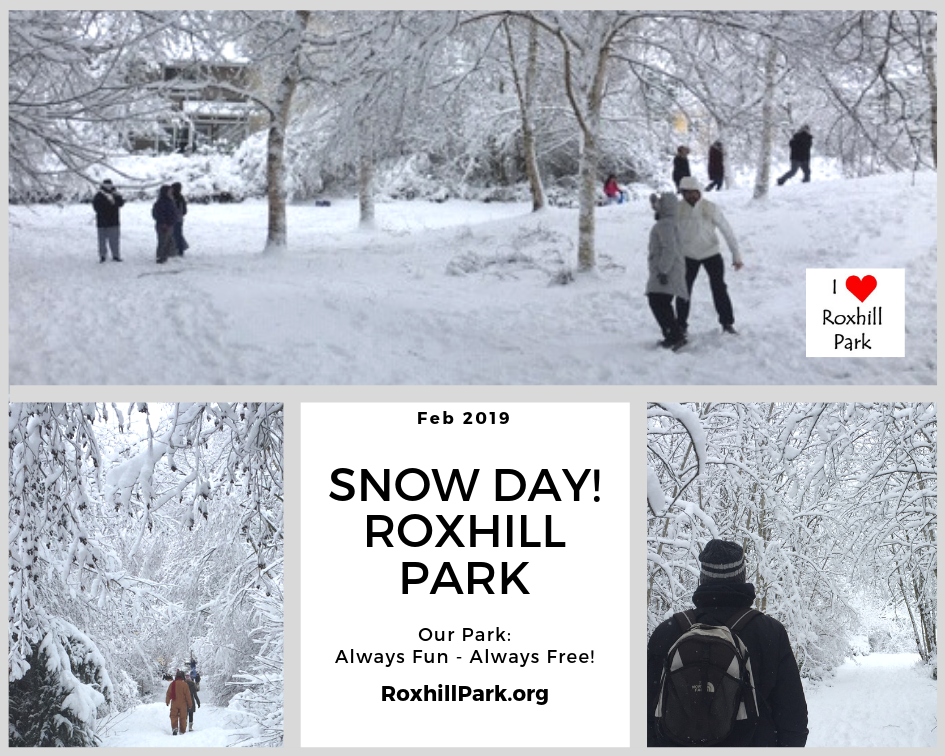Working Together to Restore Native Plants to Roxhill Park
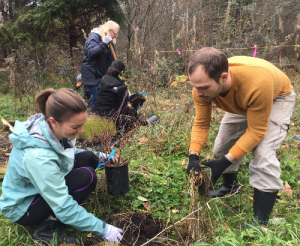
Saturday’s mild morning made for a successful day of planting around 300 native sedges and other peat-loving plants in Peat Cell 3 of Roxhill Park’s bog, which burned in October 2017. In only two hours, 26 volunteers learned about the unique diversity of the bog and got the plants firmly in the ground.
Volunteers were trained and supervised by Roxhill Park’s native plant steward, Scott Blackstock, who has led plant restoration efforts like this for more than 20 years.
He explains more about the unique soil of the bog and why peat fires can be so challenging:
“Here, the peat is six to eight feet deep, so firefighters had to bring in a backhoe to turn things over,” he explains. “Dumping water on the surface can’t penetrate deep enough to put out the embers, so if the fire hadn’t been stopped, it could have traveled underground to the other peat cells in the park.”
This could be devastating to the bog.
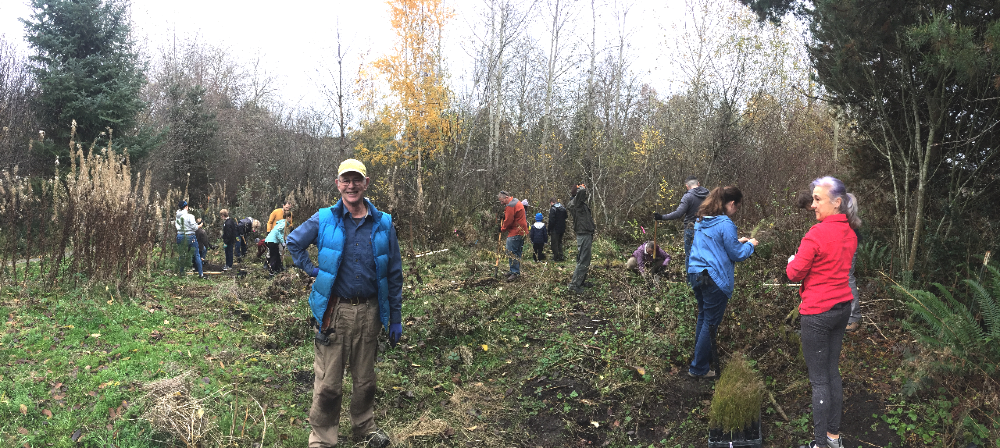
The Roxhill Park bog is one of the most biodiverse and unique ecologies in the city, with its unique habitat serving as a pit stop and refuge for animals and birds. It is also filters and feeds stormwater run-off into Longfellow Creek, one of Seattle’s few salmon spawning creeks.
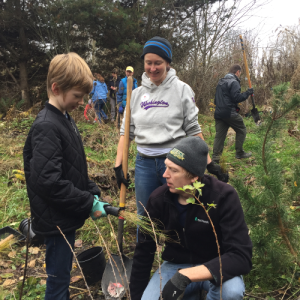
Native plants were provided by Green Seattle Partnership, (GSP) a collaborative effort between the City of Seattle, Forterra, community partners and volunteers. GSP also thinned out invasive plants and overgrown trees throughout the park to help native species thrive.The event was coordinated by Roxhill Park Champions, which also leads a one-hour work party the second Saturday of every month. Join our mailing list to stay informed, find out events and learn about our next meeting in the new year. Everyone is welcome to join us and help lead efforts to engage our community with the park and its important role in our shared ecosystem.


